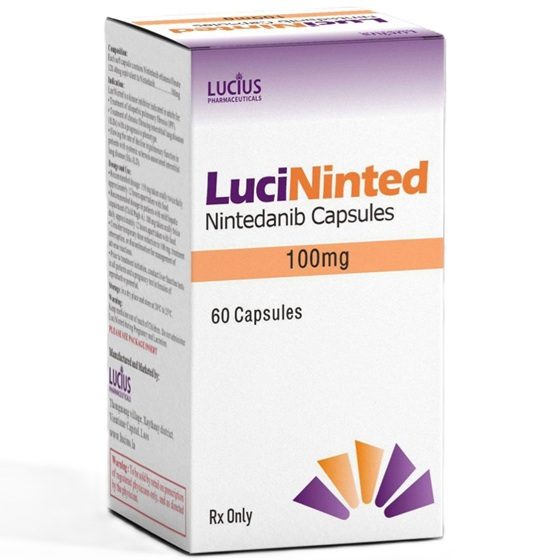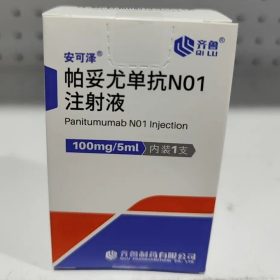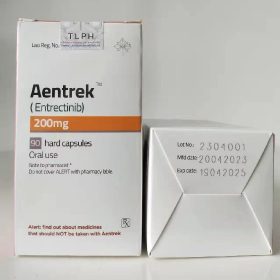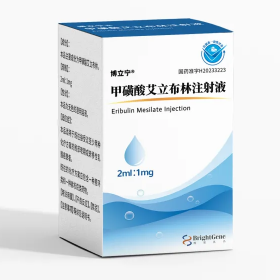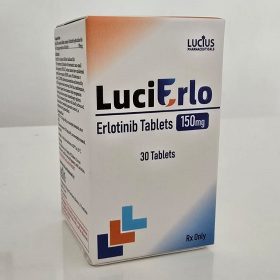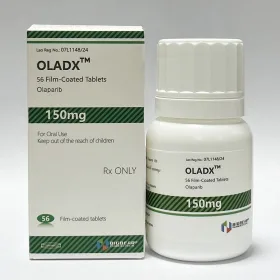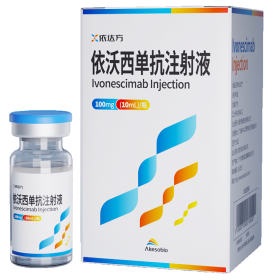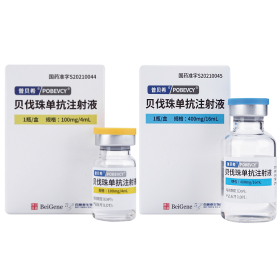- Details
- Description
-
Packaging Size60c/Bottle/Box
-
Strength100mg
-
CompositonNintedanib
-
TreatmentIdiopathic pulmonary fibrosis
-
FormCapsule
-
BrandLuciNinted
-
Quantity Unit100mg*60c/Box
-
ManufacturerLucius Pharmaceuticals (Lao) Co.,Ltd
About Nintedanib
Nintedanib is an oral medication used for the treatment of idiopathic pulmonary fibrosis and along with other medications for some types of non-small-cell lung cancer.
Idiopathic Pulmonary Fibrosis
Indicated for idiopathic pulmonary fibrosis
150 mg PO q12hr
Chronic Fibrosing Interstitial Lung Diseases with a Progressive Phenotype
Indicated for chronic fibrosing interstitial lung diseases (ILDs) with a progressive phenotype
Unclassifiable ILDs, autoimmune ILDs, chronic hypersensitivity pneumonitis, sarcoidosis, myositis, Sjögren syndrome, coal workers pneumoconiosis, and idiopathic forms of interstitial pneumonias (eg, idiopathic nonspecific interstitial pneumonia) are among the diseases that may develop a progressive form of chronic fibrosing ILD
150 mg PO q12hr
Systemic Sclerosis-associated Interstitial Lung Disease
Indicated to slow the rate of decline in pulmonary function in patients with systemic sclerosis-associated interstitial lung disease (SSc-ILD)
150 mg PO q12hr
Dosage Modifications
Dosage modifications due to adverse reactions
- Adverse reactions may require dose reduction or temporary interruption until the specific adverse reaction resolves
- Resumed at 150 mg q12hr, or at 100 mg q12hr, which subsequently may be increased to the full dose (150 mg q12hr)
- If 100 mg q12hr is not tolerated, discontinue treatment
Elevated liver enzymes
- AST/ALT >3 to <5x ULN without signs of severe liver damage: Interrupt treatment or reduce to 100 mg BID; once LFTs return to normal, may reintroduce at 100 mg BID, which subsequently may be increased to 150 mg BID
- AST/ALT >5x ULN or >3x ULN with signs/symptoms of severe liver damage: Discontinue
Hepatic impairment
- Mild (Child Pugh A): 100 mg PO q12hr
- Moderate-to-severe (Child Pugh B or C): Not recommended (not studied)
Renal impairment
- Mild-to-moderate: No dosage adjustment required
- Severe (CrCl <30 mL/min) or ESRD: Not studied
Dosing Considerations
Laboratory testing before initiating
- Conduct liver function tests in all patients
- Obtain pregnancy test in females of reproductive potential
Mesothelioma (Orphan)
Orphan designation for treatment of mesothelioma

